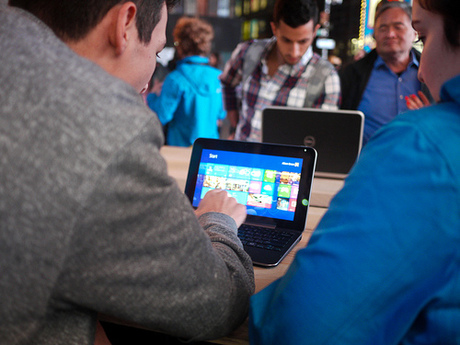Dell latest to jump from Windows RT ship

In the latest blow to Microsoft’s Windows RT, the mobile-centric operating system designed primarily for low-power ARM chips, Dell has revealed it has no current plans to produce another RT tablet.
“We are not planning to refresh our current line of RT products,” Dell Head of Tablets Neil Hand told CNET at an event last week to launch new laptops and tablets. “We’re really focused on full Windows products.”
Dell’s first RT product, the XPS 10 tablet, will be phased out after worse-than-expected sales. Final inventory is expected to be sold out within weeks.
Dell has attributed the decision to factors including a lack of Windows RT apps and the fact that the company can sell full Windows products for a comparable price to RT devices.
The company has since clarified to TechNet that it hasn’t ruled out releasing another Windows RT tablet some time in the future, but confirmed that its current tablet line-up is focused on Windows 8.1 and Android devices.
In an analyst note published late last month, Gartner research director Annette Jump noted that Dell’s success in the tablet market had been limited by the initial focus on Windows RT.
“The adoption of Windows RT has been very limited for all device providers so far, and Dell is not the exception,” she said. “And we continue to believe that the Windows RT opportunity will remain very limited in both the consumer and enterprise segments.”
Although Dell insists that it hasn’t ruled out future RT devices altogether, the move seems to be another setback for the struggling operating system.
Support for Windows RT among OEMs has been declining since before the first crop of devices hit the market, with Toshiba and HP both pulling out of the RT program before launching their planned devices.
Asus has declared it won’t produce any more Windows RT tablets, citing poor sales. Acer had planned an RT tablet, but has decided to wait for the next version before making a decision whether to follow through. Acer President Jim Wong told Infoworld there is “no value” in the current version.
Samsung also abandoned plans to launch its Windows RT device in the US, although new rumours suggest that Samsung has produced a version of its Galaxy Tab that dual-boots Android and Windows RT.
Nor has Microsoft had much success with the RT version of its own Surface tablets. In July the company was forced to take a $900 million writedown on the value of its Surface RT inventory and also slashed prices due to worse-than-expected sales.
Some analysts have linked the writedown to the pending departure of Microsoft CEO Steve Ballmer, suggesting he is being pushed out by the board.
IBRS advisor Joe Sweeney said one of the main factors impeding greater adoption of Windows RT among consumers and OEMs is the lack of support for conventional Windows applications.
“People looking at Microsoft-based tablets either want to be affiliated with Microsoft’s astoundingly cool image,” he said sarcastically, “or they are doing so because they want compatibility with their existing PC-based ecosystem. Thus, Windows RT devices are not nearly as attractive as a full Windows 8 tablet, even with the price differential.”
Microsoft’s edge in the tablet market is its legacy of applications, and RT fails to take advantage of that, he said. “Being fair to Microsoft, RT is quite an impressive OS. But this is not about the technology or even the best product: it’s about the ecosystem.”
Microsoft appears to be making moves towards integrating RT and Windows Phone into a single product, Sweeney noted. “[This] makes a lot of sense. However, even then it will remain a distant third place to iOS and Android. Instead, I think we’ll see a lot more take-up of low-cost, full Windows 8.1 tablets, hybrids and ultrabooks.”
The IT giant has not shown any indications of dropping RT altogether, he said. “Depending upon the strategy of their new CEO, I would not discount the possibility. [But] Microsoft needs to continue to playing in the handheld/tablet market, so I expect RT - or whatever name it is given over time - will remain.”
IoT demands alternatives as 3G sunset looms
The impending 3G shutdown is a daunting prospect for organisations across ANZ that rely on...
Broadband measurement shows online gaming stacks up
The ACCC's latest Measuring Broadband Australia report has found that consumer connections to...
BlackBerry stopping one cyber attack per minute
A new report from BlackBerry's Threat Research and Intelligence team highlights the...




